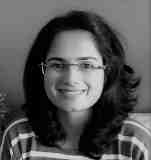Careers outside academia: How Jeong-In Yun turned challenges into opportunities and co-founded an R&D start-up
Careers outside academia
Graduate students, early career researchers, or even established researchers may sometimes be unaware of opportunities other than the traditional path of academic research. This series aims to introduce them to exciting and rewarding careers that can be pursued outside academia. We bring you interviews with experts from diverse backgrounds who share their experiences from their non-academic journeys and tips on how to transition to these paths.

Jeong-In Yun is an organic chemist and the co-founder and CTO of LeeYun Bio Co., Ltd., a company involved in small-molecule drug development. She has a master’s degree in organic chemistry from Korea University and a PhD in biopharmaceuticals from the College of Pharmacy, Chungnam National University. During her master’s and doctoral programs, she worked as a student researcher at the Korea Research Institute of Chemical Technology, and her main research area was medicinal chemistry, specifically, studies on new drugs. At LeeYun Bio, Jeong-In focuses on the development of kinase inhibitors to treat intractable diseases such as atopic dermatitis and pruritus. She also serves as the director of Engineers and Scientists for Change (ESC) and the vice-chairperson of the Gender Diversity Committee at ESC.
Q. Could you tell us a little bit about your professional journey so far and the type of work you have done outside the typical academic career path?
During my master’s and doctoral studies, I worked as a student researcher at a government-funded research institute. After getting my PhD, I could have either become a post-doctoral researcher at an institution or got a job outside academia. My first preference was getting a job and the second was working as a postdoctoral researcher at the institution where I was working.
I had started thinking about my options when my child was about seven months old. At the time I graduated, he was 11 months old, so I thought that it would be difficult to pursue a full-fledged academic career with such a young child.
Also, when I discussed the option of me pursuing postdoctoral research with my husband, I couldn’t get full support because he didn’t want his life to be disrupted because of my career. He was very opposed to me pursuing a postdoc career because it was highly likely that doing so would need me to move abroad. Since there was no support and I had to raise a child, it was obvious that I would not be able to focus on research. This was the reason I left the academic track and found a job outside academia.
Things didn’t go smoothly even after I decided to get a job. Sometimes, during my job-search phase, I had to face rude or intrusive questions. Employers asked me if I had anyone under whose care I could leave my child when I was working (no one asked this question to my husband). Sometimes, when I’d tell them that my husband was in the same field, they’d tell me that my salary should be lower than that of my husband, or they assumed that I could not go on business trips because of my son. When I think about all this now, I feel that these were quite insulting experiences, but at the time, I didn’t think so because I was desperate to get a job.
I eventually joined a company specializing in drug synthesis as an organic synthesis researcher, and I recommended to my husband, who had studied the same major as I did, that he join the same organization. But during our employment with this company, there were frequent comparisons between me and my husband. I became depressed because I started feeling worthless, and it was hard to see my husband was doing well. I was so depressed that I wished that I would disappear or he would. Eventually, I decided to quit my job after listening to harsh opinions that because I am a woman and therefore not the head of the family, it was okay for me to leave my job. I still feel sadness/resentment when I think of this.
After leaving this company, I joined a startup where I earned less than I did before, but this job allowed me sufficient time/flexibility to raise my child. They said they were open to hiring a woman with a child, so I joined the company without knowing it was insolvent. The business closed down because of poor management, but working in this company taught me enough to be able to start my own business based on my experience there. I co-founded a start-up, which is now in its second year.
At a time when I did not have the confidence to succeed in academia, I made a lot of effort to meet people from different fields to help boost my self-esteem and manage my depression. I thought that staying at home alone would not be helpful. This helped me connect with an NGO, and I now work with them along with two other non-profit organizations. I am involved in several activities with them; for example, I’m part of movements for women’s labor, environment, and diversity awareness in science and technology. In addition, I started writing a variety of articles online to overcome my depression, which led to my blog series on the survival of the scientist mother, and now, I contribute a series of articles on the challenges of being a scientist mother on the blog maintained by Biological Research Information Center. Currently, I also teach as a lecturer at the university where I received my bachelor’s degree.
Q. What helped you make this transition?
It has always been a challenge for me to maintain two jobs—mother and scientist—and I still struggle. In Korea, mothers still have to give up something for their careers—often their health or their time with their child. I couldn’t let go of my career or my time with my child, so I ended up compromising on my salary and choosing to establish a start-up that allowed me to use my time flexibly.
The driving force that helped me take on this challenge was my desire for survival. I didn’t want to give up on my career or my life as a mother, so the new challenge was the only way for me to survive. What comforted me when I faced challenging situations was what my PhD advisor had told me:
“A person with a PhD is someone who began a tough journey and reached the end. Since they have reached the end once, they will be able to take on new challenges with the intention of seeing an end again. No one is good at the beginning, but there are people who try. So you just try. You've done a PhD, so what can't you do?”
I always keep this in mind, so I was not too afraid to change my career path. After all, there weren’t many options anyway.
Q. What types of opportunities can PhD students and researchers explore in the non-academic domain you are currently working in?
There is a wide variety of job opportunities for master’s/doctoral students and researchers to explore in my area of work. You can work as a science writer who communicates science to the public, and I think many degree students who become professional science communicators can do this job better than anyone else. If we have professional science writers with majors in various disciplines, more information can be communicated to the public.
Science-exhibition planning is another job that students and researchers can explore. Wouldn’t science exhibitions in museums be better managed by those who are experts on the topics themselves?
Of course, like me, you can move to industry and get a job as a researcher at a start-up or a new-drug development company. Companies create value by building business models based on scientific findings. Working as an intern in such companies is a good way to explore a career in this field in advance.
Recently, universities have begun hiring industry experts as lecturers, so if you are already working in industry, you may have the opportunity to teach students. Instead of teaching with just a research perspective, you might be introducing students to new research-based applications through lectures.
Another option in the biomedical/pharmaceutical field is to work as a person who writes clinical documents exclusively, a technology appraiser (for patent evaluation), a patent attorney, or a venture capitalist specializing in investments in bioscience companies. I think a good way to identify opportunities is to interact with people from diverse professions and find a field of your interest.
Q. On the basis of your experience, what would you say are the 3–5 most important points a PhD student or researcher should consider when exploring non-academic career paths?
I think it’s good to decide in advance—during the master’s/doctoral program—whether to choose the academic track or a non-academic track. If you decide whether you want to get a job or study further, you can prepare accordingly. Since my goal was to get a job, I put more effort into the quality of my thesis rather than submitting a paper to an academic journal. Of course, having a paper published is important even for non-academic jobs, but I have been told that the thesis is more critical.
In addition, keep updating your CV regularly with the latest highlights about your career and research activities; I am still constantly updating mine. Whether you are on the academic track or a non-academic track, the skills you need to acquire are speaking and writing effectively. These skills are essential.
And you will find it useful to know beforehand that academia and industry do not share the same values. In academia, you may be a knowledgeable professor, but when you go out of academia, you may find yourself needing to learn many new things or learn to do things differently for your knowledge to be relevant. All technologies have academic value, but if there is no business value, they are discarded. It’s important to understand that you may not be an expert on business and to listen to the opinions of people around you.
Comments
You're looking to give wings to your academic career and publication journey. We like that!
Why don't we give you complete access! Create a free account and get unlimited access to all resources & a vibrant researcher community.

Subscribe to Career Growth







































